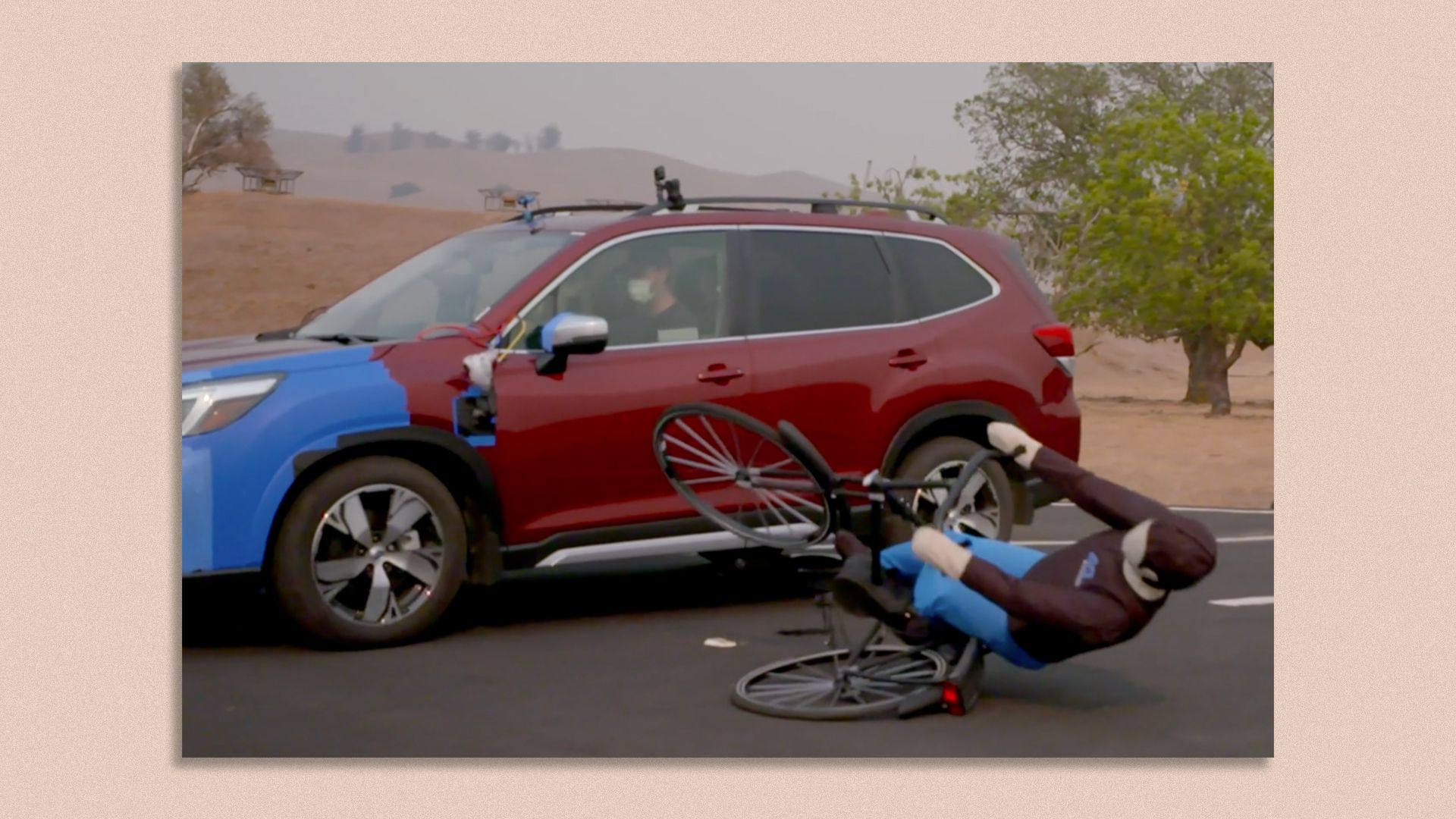Assisted-driving systems aren't collision-proof, AAA testing shows
Add Axios as your preferred source to
see more of our stories on Google.

Screenshot: AAA testing video
Assisted-driving systems don't perform well enough to consistently avoid collisions, new testing by AAA shows, underscoring why most drivers are skeptical about autonomous vehicles.
Why it matters: Although you still can't buy a self-driving car, a growing number of new cars and trucks are equipped with Automated Driver Assistance Systems, or ADAS technology, that helps cars steer, stay in their lane and brake in an emergency.
Driving the news: In its third round of ADAS testing, AAA measured how three vehicles equipped with driver-assist technology — a 2020 Tesla Model 3, a 2021 Subaru Forester and a 2021 Hyundai Santa Fe — performed in four collision scenarios using dummy cars and cyclists made of foam.
What they found: When faced with an oncoming dummy car at 25 miles per hour, the Hyundai and Subaru didn't slow down, while the Tesla did slow to about 3 miles per hour. But all three collided with the dummy vehicle, AAA said.
- The Subaru failed to detect a simulated bicycle rider crossing its path in five test runs, while the Tesla and Hyundai successfully stopped in time to avoid a collision.
- All three tested vehicles avoided hitting slower-moving dummy vehicles and cyclists when approaching from behind.
The other side: Hyundai and Subaru said they are looking into AAA's findings, and Tesla did not respond to a request for comment.
The big picture: AAA has been tracking consumer sentiment toward vehicle automation since 2016, and its latest survey found that distrust continues to run high.
- 85% of those surveyed said they were fearful or unsure of self-driving technology; a similar percentage said they would not be comfortable using a self-driving vehicle to carry their children or loved ones.
- The survey found drivers want automakers to improve the performance of existing driver support features rather than develop self-driving cars.
What they're saying: "You can’t sell consumers on the future if they don’t trust the present," said Greg Brannon, director of AAA’s automotive engineering.
- "Drivers tell us they expect their current driving assistance technology to perform safely all the time. But unfortunately, our testing demonstrates spotty performance is the norm rather than the exception."
